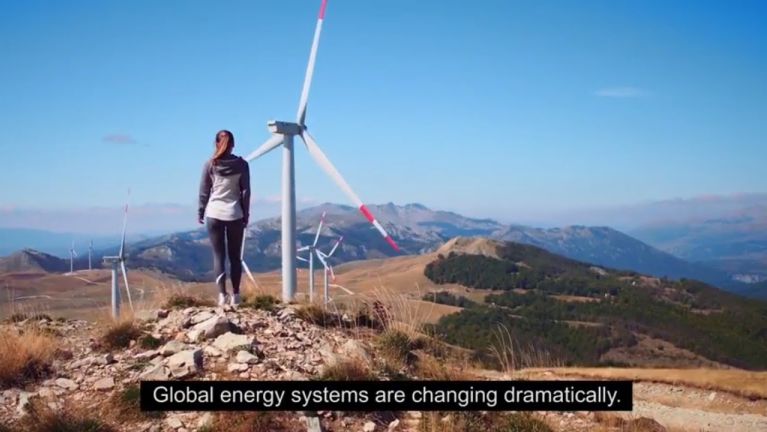How climate policy works
What can politics do to combat climate change? The political scientist Jale Tosun from Heidelberg on climate policy in the United States and Europe.

Can politics do anything about climate change? “Yes” is the answer of an internationally acclaimed innovative study that included researchers from Germany and the United States. Professor Jale Tosun, a political scientist at the University of Heidelberg, talks about its findings on climate policy in America and Europe.
Professor Tosun, your study shows that CO2 emissions in the United States and Europe have declined for a decade from 2005 to 2015. What are the causes of this decline?
Different factors come together: in our international, interdisciplinary team of authors, for example, colleagues with an engineering or scientific background show how new technologies reduce emissions. What is innovative about our approach is that we demonstrate the effect of political measures on climate protection, both in the energy efficiency policies of the countries studied and in policies that increase the share of renewables in a country’s energy mix. The more states rely on such policies, the more likely they are to see a rapid decline in emissions.
While there is widespread consensus across political differences in Europe to fight climate change, it’s surprising that emissions dropped in the U.S. during governments as diverse as those of Presidents Bush and Obama.
In his policy, President George W. Bush was able to tie in with the ambitious – at that time and given the majorities in Congress – climate protection policy of his predecessor Bill Clinton and, above all, of Vice President Al Gore. Bush at least couldn’t dismantle the foundation that was laid by Clinton and Gore, and a decline in CO2 emissions can also be seen during his term in office. The Obama administration then pushed ahead with a targeted policy mix of emissions trading, expanding renewable energies and increasing energy efficiency in various sectors. Obama initiated the Clean Energy Ministerial Forum (CEM) on a global level, thereby promoting international decarbonization. At the same time, the Forum also helped to overcome domestic political opposition. Unfortunately, the US government under President Trump has moved away from the original goals of the CEM.
Dieses YouTube-Video kann in einem neuen Tab abgespielt werden
YouTube öffnenThird party content
We use YouTube to embed content that may collect data about your activity. Please review the details and accept the service to see this content.
Open consent formAre the successes in CO2 reduction observed in your study endangered by the policies of the Trump administration?
Unfortunately they are in the US No climate-relevant laws have been added under President Trump. Instead, climate protection policies have been scaled back and voluntary commitments been abandoned, the most prominent of which being of course the United States’ withdrawal from the Paris Climate Agreement. But political decisions by states and cities in the US give hope for the reduction of CO2 emissions. California, for instance, long ago adopted a climate-friendly policy under various governors and is currently trying to build emissions trading with the Canadian provinces of Nova Scotia and Québec. Several US states, Canadian provinces and German states are also committed to the goals of the Paris Agreement as members of the Under2 Coalition. Without corresponding framework laws at the federal level, however, the effect of such efforts is limited.
Can your study be seen as a recommendation for a more climate-friendly policy?
Of course it’s our hope that the study will make the need for an ambitious climate policy clear. Our research is based on international and interdisciplinary expertise and a work period of no less than three years. The results clearly show that climate protection policy is not about making life difficult for people, but about achieving concrete, positive effects. In the United States, we observed success for the period from 2005 to 2015, especially in increasing energy efficiency, and in Europe particularly in the expansion of renewable energies. Both are urgently needed for a successful climate protection policy.


